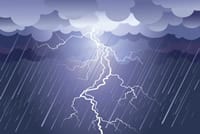It’s time to get your home ready for the upcoming winter months. I’m not sure we will be as lucky with winter as last year, with only one minimal storm here in CT.
Here are some things that we do at our house:
1. Get all the patio furniture cleaned and put inside if possible. We have a lot – and most comes inside – but there are a few pieces that are too big and heavy. For the pieces that stay out, we put those orange cones atop the table and cover with patio furniture covers. This prevents the water from puddling up. Make sure to secure the covers tightly.
2. Turn off the outside water and drain the lines. You don’t want to have to call a plumber in the middle of winter to fix a frozen line or burst pipe. Remember to bring in the outside garden hoses once you have drained them.
3. Clean those gutters before you have problems. Scoop out the debris from inside (even if you have gutter guards), so that the water can flow easily. Remember to clean out the down spouts too.
4. While you are on your roof… Check for leaks that might need fixing, cracks, and moss growing in the roof (not a good thing as moss holds moisture and that can mean rot). Don’t forget to look around the chimney. All these could become a major problem as we get into winter. As I have told you, it’s easier to fix a small issue now rather than a major issue later. You can either do this yourself or call a professional for help. While you are checking the roof, do any trees need to be trimmed? Now is a good time to do this too.
5. Get your heating systems tuned up and serviced before winter to make sure it’s in working order. There is nothing worse than waking up to no heat on a cold winter morning.
6. Caulk around the windows to seal up any drafts. You don’t want leaky, drafty windows sucking the heat outdoors. You should caulk every few years as preventative maintenance. Don’t forget to remove window air conditioners, as they create drafts.
7. Because winter storms can mean loss of electricity… You will want to check up on your emergency supplies – lanterns, batteries, flashlights, battery powered radio, warm blankets, non-perishable food with a manual can opener, bottled water, portable power chargesrs and matches if you want to cook on the barbecue grill.
It’s much better to prepare ahead of time and do little projects now while the weather is nice. You don’t want to deal with emergency repairs in the winter.
 I understand that it’s summer. I am a beach person and want to get in as much beach time as possible. In addition to that, it’s time to get your home ready for the upcoming storms / winter months. So far this summer we have lost power twice – once on a hot humid sunny day and the other in a rain storm. There is nothing worse, than not being ready.
I understand that it’s summer. I am a beach person and want to get in as much beach time as possible. In addition to that, it’s time to get your home ready for the upcoming storms / winter months. So far this summer we have lost power twice – once on a hot humid sunny day and the other in a rain storm. There is nothing worse, than not being ready.



